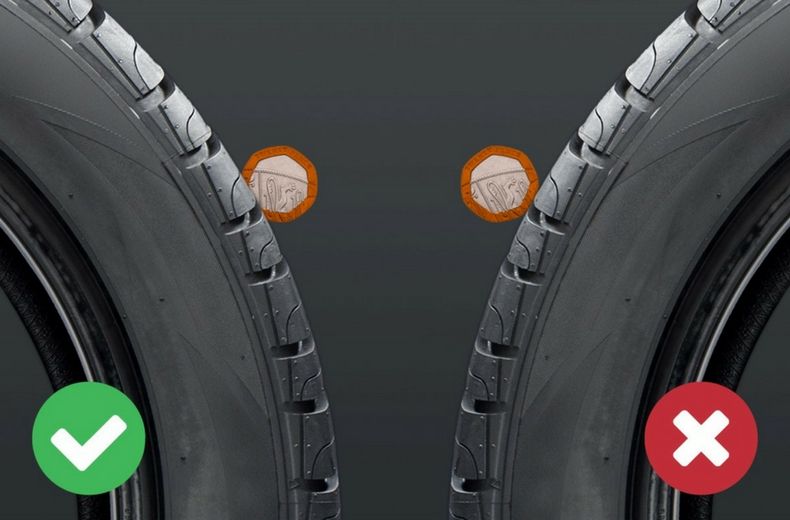Have you got a driving trip planned for the future? Maybe you’re setting off for a long cross-country route or fancy taking the car out for a spin at the weekend. After all, there are plenty of beautifully scenic routes to explore right here in the UK.
Before you set off, there are a few important things you should check so that nothing interrupts your day (or week) on the road. Preparing your car before your journey is a vital part of keeping yourself, your passengers, and your car safe, and is especially important if you’re driving in an area that’s far from home or in the middle of nowhere.
Whether you’re driving a classic car or a brand-new set of wheels, breakdowns can happen at any time and for any reason, so it’s always best to be as prepared as possible for your drive. We’ve included a few important tips for you below, so you can set off knowing you’re prepared no matter what.
Check all your tyres (including your spare)
You’ve probably heard of the 20p tyre test? This is a great trick to check the tread on your tyres, and is very easy to do. Simply take a 20p coin and insert it into the tread groove on your tyre. If your tyre tread is above the legal limit of 1.6mm, it will cover the outer band of the coin. However, if you can still see any of the outer edge of the coin when it is inserted into the tread grooves, your tyres could be dangerous to drive on and you’ll need to consider replacement.
According to the RAC, you should do the 20p tyre test every couple of weeks if you’re driving regularly, but especially before long drives.


Check your brakes
Checking your brake pads is an important part of any long car journey prep. After all, you don’t want to get caught out when it comes to your brakes working correctly. You should always pay attention to the way your car handles when you use your brakes. Does your car feel as though it’s pulling to the side, for example, or is there a loud screeching sound when you brake? Do you feel the brake pedal vibrating when you push down? All of these could be signs that your brake pads need to be checked by a mechanic, or you could check them yourself if you’re mechanically minded.
Many modern cars have an icon on the dashboard which tells you if your brake pads need to be changed. However, if your car doesn’t have this, you may be able to perform a visual check. Simply look between the spokes of your wheel and see if you can see the brake pad against the brake disc. There should be at least 3mm of the pad showing – if not, you might need to get your brake pads inspected professionally.
Check your fluid levels
There are a few different fluid levels to check in your car before you set off on a road trip, which we’ve listed below:
- Engine oil: You can check your engine oil by opening the bonnet of your car and checking the dipstick, which is marked clearly to show you how much engine oil you need.
- Coolant: To check your coolant, first make sure the engine is completely cooled down, then open the bonnet and look for the transparent coolant reservoir. There should be two indicators on the side which show you how much coolant is in the tank, and a screw-top opening at the top so you can fill it up to the necessary level.
- Transmission fluid: Those who drive automatic vehicles will also need to check their transmission fluid using the dipstick. Depending on your car, you may want to check this when the engine is running, and be sure to check the colour of the fluid too!
- Power steering fluid: If the power steering fluid reservoir tank is transparent, you may be able to check it using the indicators marked clearly on the sides. If it isn’t, you can check the level by using the dipstick.
- Brake fluid: Like many other fluids, the brake fluid should be stored in a transparent reservoir tank with clear maximum and minimum indicators on the side.
- Windscreen washer fluid: You should check the washer fluid when the engine is off; simply fill up the washer fluid until it reaches the top of the tank.
Check your lights
You can check your lights at the front and rear of your car. If you can, get somebody to help you out. Make sure to check that your side lights, dipped beams, main beams, fog lights, indicators, and hazard lights are all working correctly.
Have a breakdown kit handy
Despite best efforts, your car could break down anywhere, so it’s always best to be prepared for the worst. Make sure you take a torch, warm waterproof clothing, food and water, the number of your breakdown provider, as well as a warning triangle, jump leads, tow rope, puncture repair kit and a hi-vis jacket.
Know your route
Although it may be tempting to throw caution to the wind and set off in any direction, it could be quite dangerous if you break down in an area you aren’t familiar with. It’s always advisable to make yourself familiar with the route you’ll be taking and have this plotted out in your sat nav or on your phone. Similarly, you may also want to take a printed map of your route, so that you can still navigate if your phone or sat nav runs out of battery.
Get breakdown cover
One of the best ways to prepare for breaking down is to have an emergency breakdown provider on hand to help you out in case you get stuck. If you already have breakdown insurance in place, it’s also advisable to know when your renewal date is, so that there are no gaps in your cover when you’re out on the road.
If you’d like to get out on the road but you’re undecided about where to go, our new road trip map may be able to help! We’ve plotted 12 of our favourite British driving routes around Scotland, Wales, England and Northern Ireland, along with a step-by-step guide for each route mapping out the best places to visit, scenic spots to see, where to stop for food and where to refuel. There are plenty of drives to suit a range of locations, driving ability and how long you want to be on the road for; have a look for yourself!
To speak with an expert about your vehicle insurance needs, please call a member of the Heritage team on 0121 248 9229.

